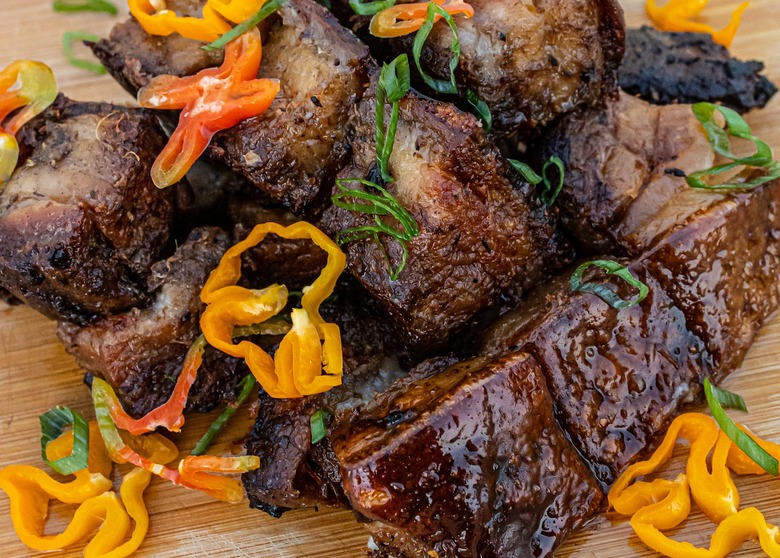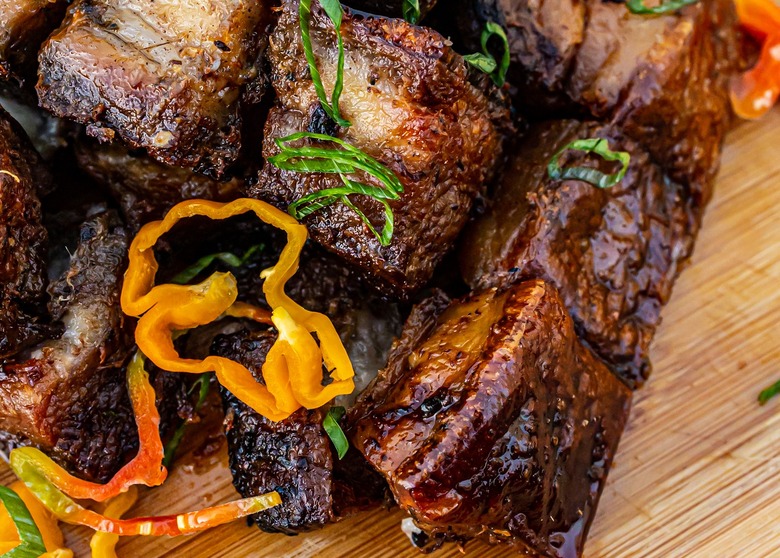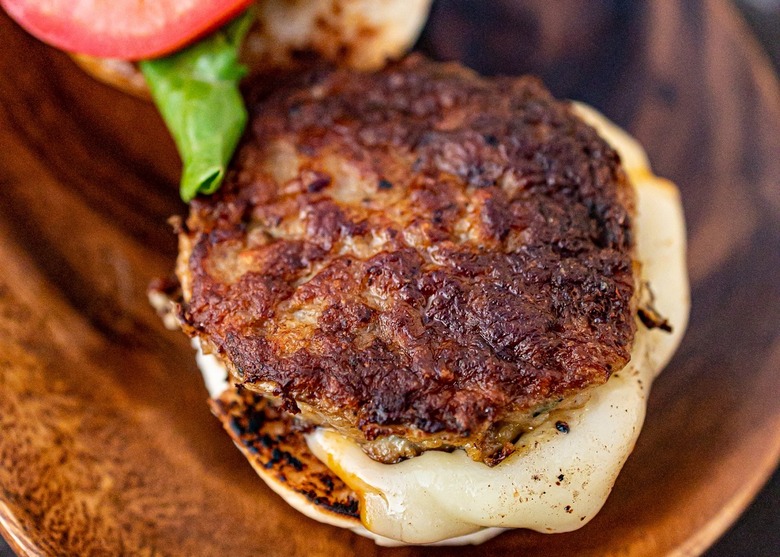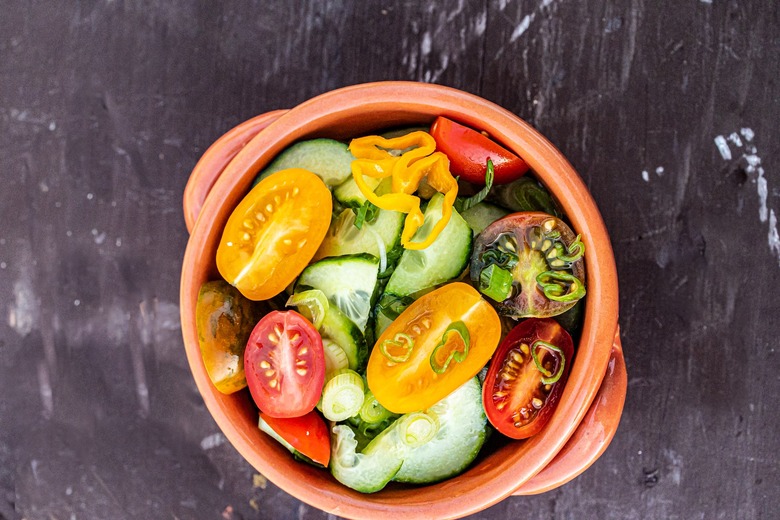How To Have A Flavor-Packed Caribibbean Barbecue
One of the little-known facts about the Caribbean is that it is the region from which modern-day barbecue likely originated.* Yes. You read that correctly. Barbecue is, at its core, inherently Caribbean.
The very word "barbecue" most likely comes from the Taino word "barbacoa." The Tainos were the native people who inhabited the Northern Caribbean.
Barbacoa speaks of the historical process of cooking food on a wooden grate over a fire. In the Jamaican context, additional spices—brought in by enslaved Africans—and the use of pimento (allspice) wood and leaves for a low and slow smoking process for cooking wild boar led to the concept of "jerk." Jerk is both a noun and a verb; it is as much the process as it is the spicy marinade.
While you can easily purchase jerk seasoning, there's nothing better than homemade. If you go this route, there are two key ingredients that should never be left out: Jamaican allspice and scotch bonnet peppers.
Like myself, allspice is native to Jamaica, and I believe the best allspice is always from Jamaica since it is adapted to thrive there. It has a different flavor profile than allspice from other places that I find to be more robust and balanced. I get mine from Highnoon Spice, which sources theirs from Jamaican farmers, but you can use any quality brand of whole, dried allspice berries. Using whole spices ensure the flavors are at their freshest and brightest. If using ground, preferably use one sourced by a company that takes an artisanal approach and grinds in very small batches.
Not all peppers are created equal; the climate in Jamaica produces very fragrant and aromatic scotch bonnets, which have an unmistakable aroma and a fruity, sweet kind of heat that adds significant depth to jerk seasoning. If you don't have fresh scotches on hand, you can add scotch bonnet seasoning to the marinade. I like to use aji, dulce or habanero peppers as a base and add the scotch bonnet powder to bring out the irreplaceable flavor.
Creativity is a way of life on the culturally rich islands of the Caribbean — along with the beat, heat, spice, vibrant colours and the sing-song cadence on which our accents rise and fall.
So turn up the music and let the Caribbean rhythms sway you into a magical summer evening!
*Editor's Note: Some historians question this narrative and argue that American barbecue was derived from Native American traditions, while others suggest it has West African origins.
Chef and Steward Jerk Seasoning
The key component for the pork belly and shrimp slider recipes that follow, this is traditional Jamaican jerk seasoning at its finest. Mix it into foods or use it as a marinade before grilling; it will boost the flavor — and heat — of any food it touches. This recipe is inspired by the one I've been making for years from my food blog, Chef and Steward.
Jerk Pork Belly
If you're only familiar with Jamaican jerk chicken, it's time to expand your horizons. Don't skimp on the marinating time here, which should be 24 hours at the bare minimum. The cook time is low and slow, resulting in perfectly tender and delicious pork belly that is sure to shine at your next cookout.
Jerk Shrimp Burger Sliders
Mix up your summer burger grill game with these easy and delicious recipe. The DIY jerk seasoning is mixed with chopped shrimp and formed into patties for a super special yet simple taake on the classic burger. Pescatarians, rejoice.
Caribbean Spicy Tomato and Cucumber Salsa
You need a refreshing veggie side to round out a Caribbean cookout, and this spicy salsa is the perfect complement. Somewhere between a salsa and a salad, it can be served on the side, spooned on top of meat or eaten as is.
For the Caribbean Spicy Tomato and Cucumber Salsa recipe, click here.




